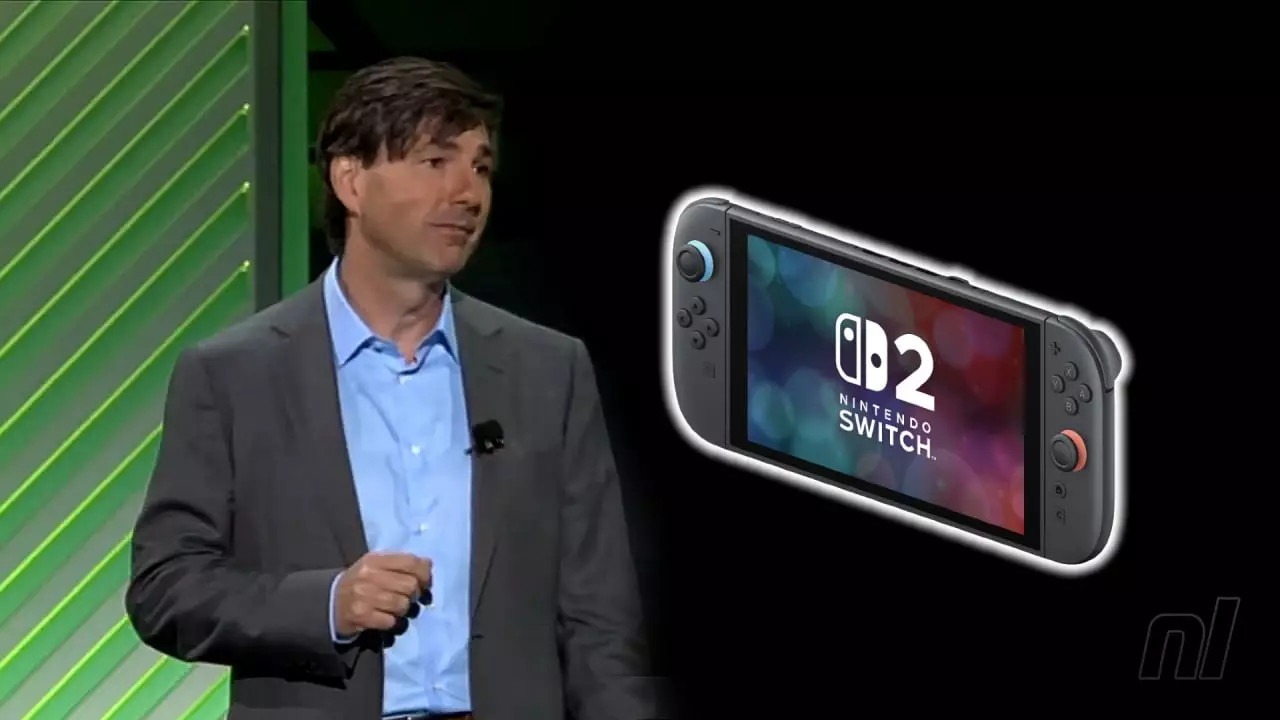The launch of the Nintendo Switch 2 has sent shockwaves through the gaming community, primarily due to its hefty price tag of $449.99. As consumers grapple with a turbulent economic climate, the pricing announcement has not only raised eyebrows but also ignited a firestorm of critique. Nintendo’s conventional charm seems to be slipping away as frustrations are voiced over the lack of transparency regarding this new console. Gamers, many of whom watched the original Switch revolutionize gaming on-the-go, now find themselves questioning whether the latest iteration justifies its premium pricing amid dwindling disposable incomes.
Nintendo of America President Doug Bowser’s recent comments—while designed to reassure the public—have instead added fuel to the fire. While addressing the backlash, Bowser attempted to frame the switch’s cost as “appropriate for the value of the machine and the gameplay experience overall.” Yet, by acknowledging that the price might exclude certain consumers, he inadvertently mirrored sentiments that were once echoed before the disastrous launch of the Xbox One. For many, this recall of a previous corporate miscalculation draws uncomfortable parallels and raises concerns about Nintendo’s insight into its audience’s diverse financial realities.
Nintendo’s Approach to Inclusivity
In an effort to cushion the blow, Bowser highlighted that the legacy of the original Switch would continue, suggesting multiple access points into Nintendo’s gaming ecosystem. He stated, “that’s why we wanted to make the other Switch platforms available, so [people] still have an opportunity to come into our gaming universe.” This acknowledgment seems well-intentioned, aiming to ensure that gamers can still engage with beloved characters and franchises despite cost barriers. However, the sentiment behind these words is lost on many who see it as a dismissive afterthought rather than a robust solution.
The idea of providing alternatives for gamers is undeniably important, especially in a time when many are weighing their financial priorities due to rising prices and economic uncertainty. Still, one cannot help but feel that discussing the affordability of the new console while simultaneously promoting its predecessor shines a light on a troubling disconnect between the corporation and its fans. The intention may be outreach, but without genuine affordability, that outreach risks being perceived as merely a deterrent for disenfranchised consumers, as was the case with Mattrick’s infamous remarks.
The Nostalgia Factor and Current Economic Realities
Moreover, Bowser’s comments stand in stark contrast to the current economic landscape. Unlike 2013, when the original Xbox One faced backlash, today’s consumers are battling inflation and a cost of living crisis. The nostalgia associated with the original Nintendo Switch adds a layer of complexity to this dilemma, as players fondly remember the device’s revolutionary features that brought gaming to the palms of their hands. This emotional attachment raises expectations—not just for innovative gameplay but also for an understanding of the fanbase’s economic realities.
As nostalgia transforms into frustration, it becomes essential for Nintendo to pivot. Current trends indicate that gameplay experiences are expanding beyond traditional console confines, with cloud gaming, mobile platforms, and subscription services gaining traction. Comparisons to past console lessons are instructive; they emphasize that the gaming industry must remain adaptable and sensitive to the evolving needs of its audience.
Impact on Consumer Trust
Ultimately, Bowser’s well-meaning remarks hit the wrong notes and reveal the precarious position Nintendo finds itself in today. Where some might see an invitation to explore alternate consoles, others hear an entrenched divide that threatens consumer trust. All this begs the question: can Nintendo navigate a path toward maintaining its legacy while actively listening to the concerns of a diverse gaming community? As pricing structures escalate, the time has come for corporations to step beyond their established roles and genuinely engage with their audiences to foster lasting, meaningful relationships built on trust and inclusivity.
As the excitement surrounding the Nintendo Switch 2 continues to bubble, a stark reality remains: transparency, affordability, and accessibility must lead the way if Nintendo intends to avoid the pitfalls that have ensnared its contemporaries before.


Leave a Reply